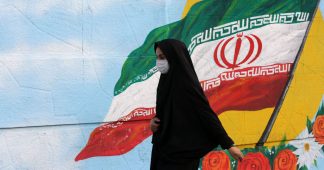By David Choi
Mar 25, 2020
Foreign leaders from the Group of Seven countries failed to agree on a joint declaration because of disputes on what to call the coronavirus pandemic, according to the German magazine Der Spiegel.
The US State Department, led by Secretary of State Mike Pompeo, insisted on describing the novel coronavirus as the “Wuhan virus” during preliminary discussions — a nod to its suspected place of origin in Wuhan, China, according to Der Spiegel. The differences between the other G7 countries and the US blocked the issuance of a joint declaration, the magazine reported.
The rejection of the proposed joint statement was confirmed by CNN. The heads of state later published separate statements on the coronavirus.
“What the State Department has suggested is a red line,” a diplomat from a European country told CNN. “You cannot agree with this branding of this virus and trying to communicate this.”
The upcoming meeting between Canada, France, Germany, Italy, Japan, the UK, and the US was supposed to take place in Pittsburgh in later this month, but it is expected to be conducted via teleconference because of the coronavirus.
President Donald Trump and congressional leaders have described the coronavirus — which has been found in 170 countries — as the “Chinese virus” and the “Wuhan virus.” The leaders also said the Chinese government had a documented history of downplaying the virus and obfuscating information before it spread beyond its borders and affected other nations.
“This is the Wuhan coronavirus,” Pompeo said earlier in March. “It has proven incredibly frustrating to work with the Chinese Communist Party.”
When Trump was asked about his description of the virus, he said he did not believe it had racist undertones.
“It’s not racist at all,” Trump said last week. “It comes from China — that’s why. It comes from China. I want to be accurate.”
Critics have said that characterizing the virus by its country of origin fueled xenophobic attitudes. Other diseases — including the 2009 H1N1 influenza virus, more commonly known as the “swine flu,” that was first found in the US — are not referred to by their countries of origin.
The World Health Organization urged people to be “careful” in labeling the coronavirus and said, “Viruses know no borders and they don’t care about your ethnicity.”
The remarks come as numerous hate crimes have been reported by people of Asian heritage around the world. The Asian Pacific Planning and Policy Council, Chinese for Affirmative Action, and San Francisco State University have since created a website on which people can report discriminatory behavior.
Trump on Monday said the Asian American community ought to be “totally protected” in light of xenophobic attacks during the coronavirus pandemic, including “nasty language.”











